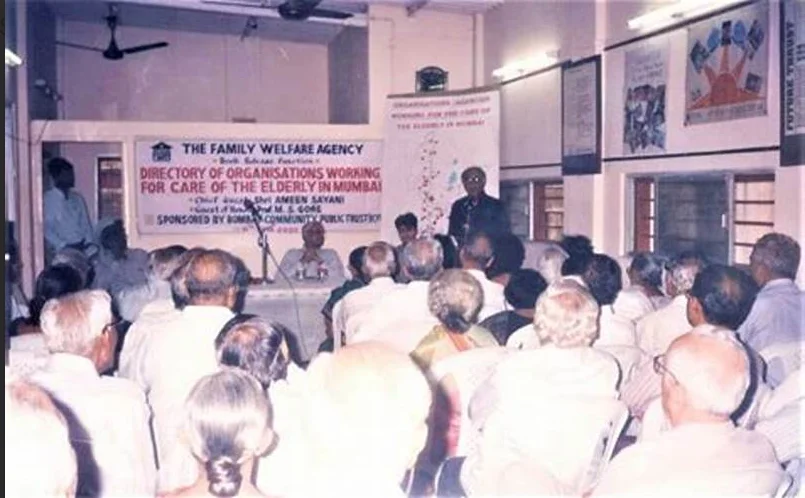The Family Welfare Agency’s work focuses on an oft-neglected population: the elderly. FWA runs programmes to help senior citizens – particularly those from marginalised and underprivileged backgrounds – have a caring and holistic ageing experience with their families and communities. The organisation’s work is predominantly in Mumbai, a busy metropolis where loneliness among the elderly is a growing problem affecting their wellbeing.
Over the years, FWA has initiated several grassroots-level welfare services for the elderly, such as day-care services, multi-service centres for senior citizens, training of professionals, paraprofessionals and volunteers to work with elders and sensitisation campaigns to prevent abuse of the elderly.
Since 1991, mental healthcare has been another major aspect of FWA’s work. On this front, it has started day-care services for rehabilitating recovering mentally ill patients, reconstructed a mental health centre, and initiated campaigns and sensitisation programmes to raise awareness about mental health and support for the mentally ill.
The project supported by MFE:
Comprehensive psychosocial program addressing loneliness and depression amongst people aged 60 years and older
This project is premised on the fact that the elderly – a growing population across India – face a variety of specific problems because of urbanisation, increased costs of living and healthcare, migration of younger family members, reduced mobility, poor physical health, lack of caregivers and poor quality of caregiving. All of this impacts their mental health through the often-unseen problems of depression and loneliness, and through this project, FWA aims to bring about a 40% reduction in moderate to severe depression and loneliness among its beneficiaries.
The project will focus on three neighbourhoods within Mumbai city: Lower Parel, Curry Road, Arthur Road and surrounding areas. The first step of the project will involve identifying elders in need through door-to-door community outreach among at least 2,400 families. FWA aims to connect at least 1,800 consenting families with its programmes and screen 1,300 senior citizens to understand their needs and functional abilities.
The second objective is to develop, facilitate need-based psychosocial programmes to address loneliness and depression among the project participants. One of these programmes will be day care spaces where senior citizens can participate in regular exercise and nutrition sessions, along with mental health sessions where they can bond, reminisce and deal with issues like loss and grieving. For those who need greater care, FWA will also provide one-on-one psychosocial support and home-based care. FWA aims to have at least 1,100 beneficiaries participate in these programmes, with at least 450 seniors participate in 80% of the day-care activities.
The final project objective is to develop a community-based support network for seniors as well as caregivers. It aims to set up peer support groups and enrol at least 200 elders in them, train at least 70 senior volunteers in supporting their peers, and enrol 120 caregivers in wellness sessions designed for them.

